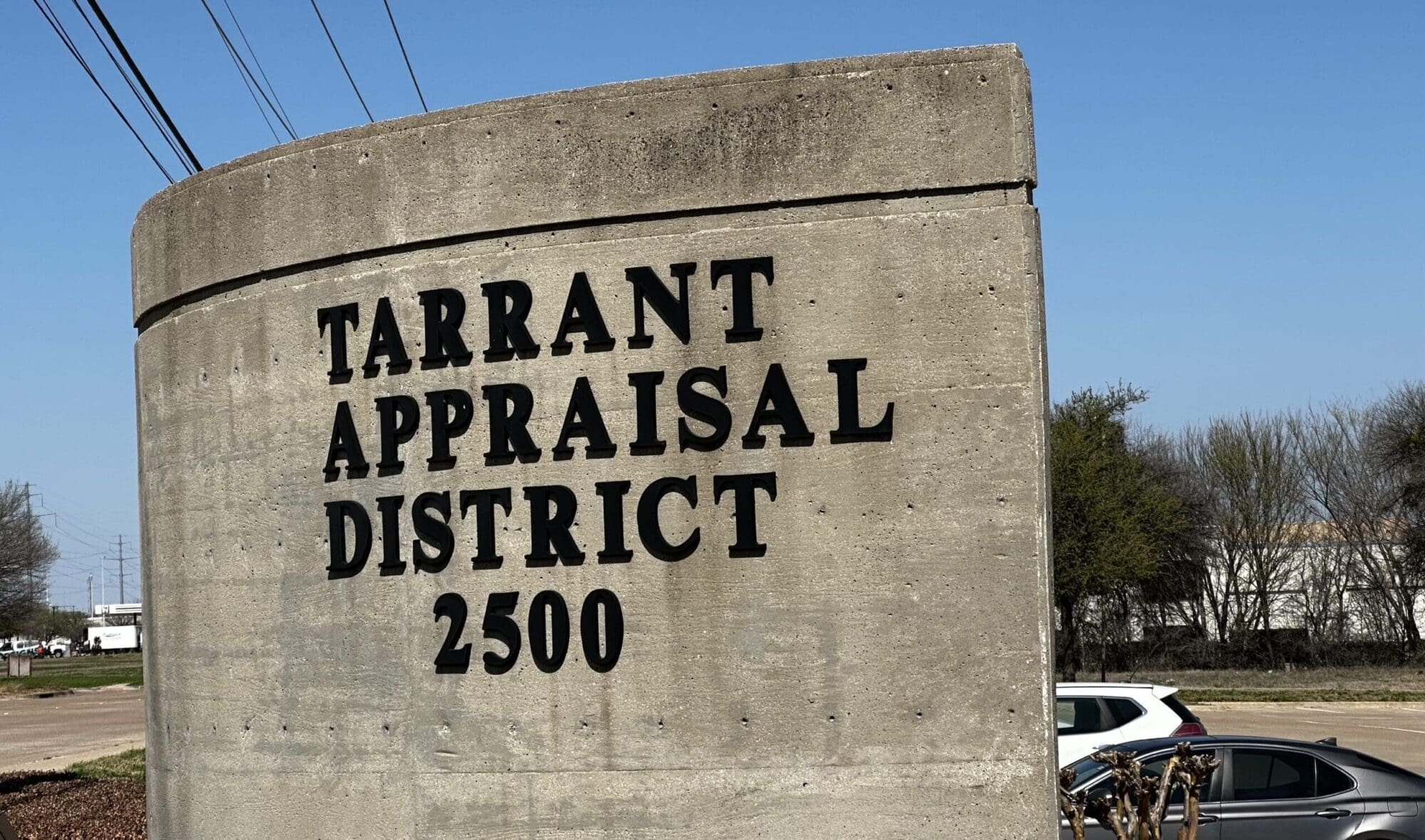Tarrant County residents may see lower property valuations for tax purposes thanks to new procedures approved by the Tarrant Appraisal District board of directors.
But the changes, which were championed by the board’s new taxpayer-elected directors, won’t necessarily result in lower property tax bills.
The proposals approved during Monday’s TAD board meeting are intended to streamline the appraisal process and provide relief to struggling property taxpayers, especially homeowners:
- Properties will be appraised every two years (first proposed as every three years) instead of annually.
- TAD will not reappraise existing residential properties for the 2025 tax year.
- Going forward, residential appraisal increases will be capped at five percent, unless the appraisal district presents “clear and convincing evidence” that a higher valuation is warranted.
- TAD will consider previous reductions when appraising properties.
Tax consultant Chandler Crouch called the measures “a huge step in the right direction.”
Crouch also cautioned that residents could see higher than warranted tax bills if their property declines in value between appraisals, as the taxable value will remain the same. However, property owners will still be able to protest their values.
Despite some reservations, Crouch credited the board’s new taxpayer-elected directors for championing positive changes.
“Because homeowners need help, we need to do something,” he told the board. “I commend you for taking this on.”
Monday’s special meeting was the first with the new nine-member board that now includes three directors elected by Tarrant County voters: Matt Bryant, Callie Rigney, Eric Morris.
Five directors are selected by the local taxing entities (county, cities, school districts) served by the appraisal district. Current appointees include Chairman Vince Puente, Alan Blaylock, Rich DeOtte, Gary Losada, and Gloria Peña.
Tax Assessor-Collector Wendy Burgess serves as an ex officio director.
The board also directed Chief Appraiser Joe Don Bobbitt to negotiate for new computer-assisted mass appraisal (CAMA) software with three vendors identified as top contenders: True Prodigy, GSA, and Esri.
Software issues were among many problems that contributed to the appraisal district becoming known as a dysfunctional mess under former Chief Appraiser Jeff Law, who resigned last year after 15 years in the job, and his backers on the board.
Whatever the impact of TAD’s new appraisal processes, Tarrant County homeowners will definitely receive a break on their property taxes—in the short term at least—due to a new exemption.
In June, Tarrant County Commissioners Court voted to increase the homestead exemption for county and hospital district taxes from 10 percent to 20 percent—the highest exemption allowed by state law. The increase will save average homeowners about $136 on the county’s portion of their property tax bill.
Still, the largest portion of homeowners’ property tax bills depends on the tax rates set by their locally elected city and school officials.
Several school district representatives expressed concerns to TAD on Monday that the changes could negatively impact the tax revenue they collect, as well as districts’ ability to issue bonds.
Rigney responded, “As an elected official, I feel that it’s my responsibility to represent the taxpayers of Tarrant County, not the taxing entities. I understand that the school districts are having to do more with less, but so are our taxpayers.”
City of Arlington Treasurer Ethan Klos told the TAD board that cities will still set tax rates that collect enough revenue to cover budgeted spending.
“Whether or not you reappraise, what that does is not affect what the city’s taxes overall are. It affects who pays those taxes,” Klos said.
Losada chided local taxing entities that try to “shift the blame” for higher tax bills onto the appraisal district, noting that officials can set lower tax rates if appraised values go up.
“These monumental changes will ensure a more fair and transparent appraisal process for Tarrant County property owners,” Tarrant County Judge Tim O’Hare posted on social media. “This a great start, but tax relief is still needed from the state and local taxing entities.”
Local governments across the state are in the process of setting budgets and tax rates for the coming year.
The next TAD board meeting is scheduled for August 9.
UPDATED July 24 with comments from Tarrant County Judge Tim O’Hare.





